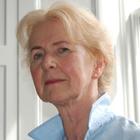 Last year my sixty year old brother took his own life. When he was diagnosed with terminal renal cancer, he had just watched a close family member die a drawn out and undignified death from cancer. He was determined not to go through the same misery—to have some control over his death. In the absence of the option of assisted dying, he planned his suicide; but suicide is not as easy as some suggest, particularly in the end stages of illness and with others to consider.
Last year my sixty year old brother took his own life. When he was diagnosed with terminal renal cancer, he had just watched a close family member die a drawn out and undignified death from cancer. He was determined not to go through the same misery—to have some control over his death. In the absence of the option of assisted dying, he planned his suicide; but suicide is not as easy as some suggest, particularly in the end stages of illness and with others to consider.
Eventually, paraplegic and breathless from pulmonary disease, he sent his wife away overnight to visit her mother. When she came back she found him dead at the bottom of a flight of stairs, in a pool of blood and with a noose in his hand. The coroner didn’t know how he died or, more to the point, how long he might have been conscious after his undoubted suicide attempt. What we do know is he was desperate, and that he died alone while trying to kill himself. The legacy of sadness for those he left behind overwhelms all other memories of him.
One of the glib replies I have been offered in response to my brother’s story is that hard cases make bad law. The reality is that hard cases make hard cases. I have had two “hard cases” in my immediate family in the recent past. Multiply that across the country and you have thousands of hard cases, each one representing untold suffering and misery for all involved. Even one difficult death is a difficult death too many.
Opponents of assisted dying say that all suffering can be relieved, but as doctors we know this is not true (a recent survey found that even with the best possible care in a hospice, two per cent of people had no relief of symptoms in the last three months of life). We doctors are not omnipotent: even when we can control symptoms, we can’t relieve terminally ill patients of their fear of a bad death. Only the option of assisted dying can do that.
As we know from Oregon, of those who enquire about assisted dying and gain comfort from its existence, only a very few actually go on to use it. It accounts for 2.2 deaths in every 1000, the equivalent of one patient for each GP practice every eight to nine years.
There is no consensus among the medical profession on the matter. The BMJ is running a series of interviews with leading lights of the medical world, and one of the questions asked is about attitudes to assisted dying. Analysis of the responses shows that—of the people who expressed a firm opinion—those in favour outnumber those against (11 for, eight against, six unclear or neutral).
Surveys of the profession have produced variable outcomes depending on the questions asked and the methods used. A recent survey by the Royal College of General Practitioners, for instance, has been criticised for releasing a figure, which said 77% of doctors were opposed to assisted dying, based on the responses of 234 individuals—less than 0.5% of college membership.
So it is disingenuous of the BMA, which represents all doctors, to take a position of entrenched opposition to assisted dying when doctors themselves hold views right across the spectrum. The honest position, recognising the range of feeling among doctors, would be to survey the membership about moving to a position of neutrality. The BMA had the opportunity to debate such a move at its summer meeting but rejected it, ignoring over a dozen motions all calling for a survey of members on a return to a neutral position.
The question of assisted dying should be a matter for society to decide, and there is no reason why the opinion of the medical profession should carry more weight than others. Yet the opposition of the BMA and various colleges is repeatedly cited by the opponents of assisted dying as though it has special significance. If the views of the profession are going to be used as ammunition in such an important debate, then it is important that we know what they are and present them honestly. There is nothing to stop the BMA from asking the question except fear of the answer.
There can no longer be an excuse for not acting: we owe it to my brother and all those patients who will otherwise continue to die hard deaths. With assisted dying, my brother could have died at a time of his choosing with his family present, instead of alone and in pain. I challenge opponents of assisted dying to look patients like my brother in the eye, and tell them that patient choice doesn’t count when it comes to end of life decisions.
Jacky Davis is a consultant radiologist, campaigner for the NHS (founder member of Keep our NHS Public), co-editor of the book NHS SOS, and a member of the BMA council. She has written this blog in a personal capacity. You can follow her on Twitter @DrJackyDavis.
Competing interests: I have read and understood the BMJ policy on declaration of interests and I hereby declare the following interest: I’m a member of Healthcare Professionals for Assisted Dying (HPAD).
